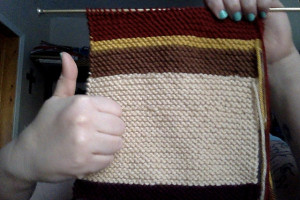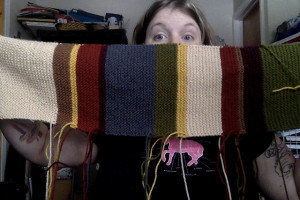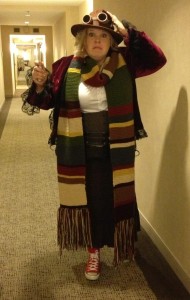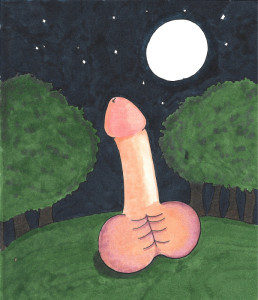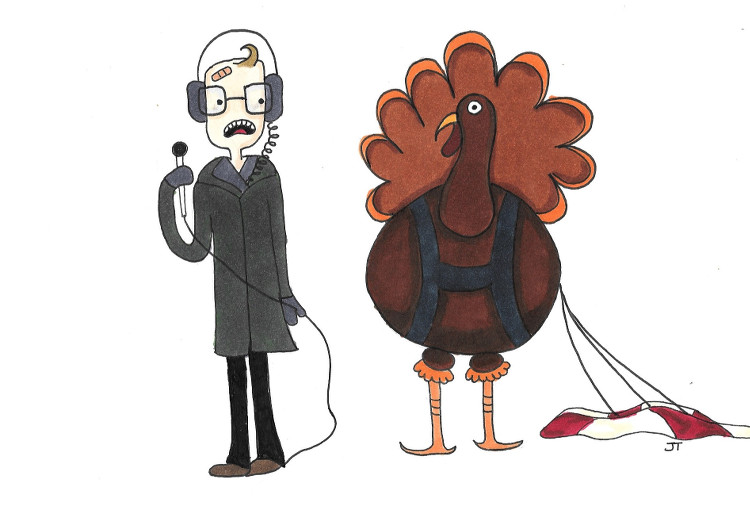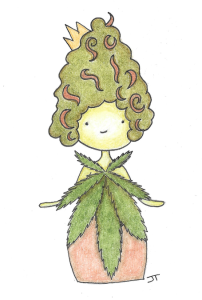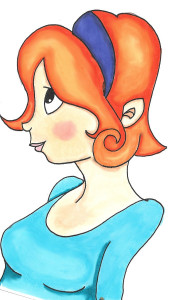I’ll be honest: I don’t follow JA Konrath’s blog much these days. When I was first venturing into self-publishing, I ate it up. But as I continued down my path, somehow I just fell away from a lot of the self-publishing bloggers I’d been reading.
Last Tuesday, Konrath took to his blog to sing the praises of self-publishing and the freedom it brings:
“So why am I writing kinky romance?
Lots of reasons.
First, because I can.
We live during the greatest time in history to be a fiction writer. Anything you can dream up, you can publish. Maybe it will find an audience. Maybe it won’t.
But at least it has the chance to.”
Yes! Right on! Self-publishing is fantastic for that! I don’t see why everyone is so up in arms over this post!
Our male protagonist is a sex worker. An escort. A prostitute. I’m pretty sure Harlequin didn’t allow that back when Ann was publishing her romance continuities. I also believe Harlequin had a guideline that once the hero met the heroine, neither were allowed to philander. Strike two. Finally, the sex in Want It Bad makes Fifty Shades of Grey look like a Disney picturebook. Harlequin may have had some racy titles, but I doubt they ever got this racy.
Hmmm. I’m starting to get a sense of why some authors took exception to this post.
The “Ann” Konrath refers to is Ann Voss Peterson, who wrote award-winning romantic suspense for Harlequin’s Intrigue line. This is important information later.
So check out Want It Bad. It has romance. It has female-buddy banter. It has humor. It has insanely kinky sex. It’s a feminist, empowering, 21st century love story that couldn’t have been written ten years ago because the genre, opportunity, and mindset didn’t exist.
Oh. Okay, now I see why I took exception to this post.
Let’s start with the obvious: you could have totally written a 21st century love story ten years ago. Because ten years ago was in the 21st century. So let’s be pedantic and get that out of the way right now.
Your book has romance, kinky sex, female-buddy banter, is feminist and empowering, but couldn’t have been written ten years ago because there was no genre for it, no opportunity to write it, and nobody had the mindset.

Now, I’m not going to debate whether or not Sex and the City lives up to either modern or contemporary standards of feminism. But the popularity of Sex and the City was a watershed moment in how our culture viewed sex from a female perspective. Here was a show that gave us female characters who didn’t compete with each other, who talked about more than just how their lives related to men (though men were the topic of conversation more often than not) and which exposed the frank, raunchy, enthusiastic approach toward sex that women were sharing with each other. Again, I’m not debating whether the show covered all possible experiences (the characters were middle and upper class white women who were all straight), but it did have empowerment, feminist issues, “female-buddy banter,” humor, and kinky sex (every time I write about Sophie squirting, I remember that I learned about it from Sex and the City). The show had everything Konrath is praising his own work for having… and it ended its run in 2004. For those of you who are tragically bad with numbers, that’s… ten years ago. It actually debuted in 1998. So clearly the “mindset” existed.
The problem is that Konrath didn’t realize the mindset existed. Or, more accurately, Konrath didn’t realize the mindset could make him money back then. In the comments section, he says:
Courtney Milan, who by all accounts is a good writer and a person I respect even if I don’t agree with her on everything, mentioned this on Twitter.
Which is why you said the “genre, opportunity, and mindset didn’t exist”?
I said that because it didn’t exist.
Has there always been erotic romance? Sure.
Has it always been mainstream?
No. Fifty Shades of Grey sold 100 million copies and opened the genre up to huge numbers of readers who never tried the genre before.
Fair enough, Fifty Shades of Grey did cause an erotica boom. But Konrath appears to be saying that yeah, erotic romance exists, but he wasn’t paying attention to it back when it didn’t stand a chance of lining his pockets. Now that he’s seen the kind of cash erotic romance authors are making, he’s going to expose and break down the barriers of censorship that had already been crumbling since 2000, when Tina Engler founded Ellora’s Cave.
Again, if you’re bad at math, that’s fourteen years ago, four years before the mindset that allowed for female-friendly erotica’s existence.
When confronted about his statements, Konrath moved the goal posts and demanded evidence that erotic romance existed before his:
Can someone show me an HQ series featuring a sex worker who sleeps with a woman after meeting the heroine? Or a HQ continuity with candle wax, pillory spanking, and a sex machine?
and
So you’re telling me that FSoG could have gotten into Walmart years ago, as part of a HQ series or continuity?
You’re saying that HQ Blaze was not only mainstream, but the hero and heroine could sleep with others after they met, used sex machines, dripped hot wax on each other, etc, and were still for sale in Target or Sam’s Club?
If so, then I’m wrong. But if FSoG opened up this genre to worldwide acceptance, then my points stand.
As several commenters rightly pointed out, Konrath didn’t say that erotic romance couldn’t have been carried in big box stores ten years ago, or that Harlequin hadn’t published the elements in his book. He didn’t even say that his book couldn’t have been published ten years ago. He said:
It’s a feminist, empowering, 21st century love story that couldn’t have been written ten years ago because the genre, opportunity, and mindset didn’t exist.
The twitter and comments arguments continued in this vein, with women who’ve been writing in the genre for twenty or more books simply asking Konrath to admit that he’d written something objectively false, and Konrath refusing to acknowledge both the actual words in the above quote, or that Harlequin isn’t the sum total of the romance genre.
For some reason, this behavior doesn’t endear him to erotic romance authors, and neither does his behavior toward Courtney Milan in their twitter exchange:
Konrath grew even more defensive when author KT Grant suggested that a snipe he made with regards to Milan’s sales compared to Peterson’s sales was hitting below the belt:
Courtney insulted me a lot in that Twitter exchange, and I was polite.
Then she insulted my co-authors, saying Ann didn’t know what she was talking about.
Taking potshots at me is fine. Potshots at my co-authors? I don’t play that.
Courtney has NO BUSINESS telling Ann Voss Peterson that she doesn’t knwo what she’s talking about. Ann has forgotten more about writing than Courtney knows, and she’s a better writer than damn ear anyone I’ve ever met.
Next time you get insulted, read it in context.
Ah. Apparently Grant was interrogating the text from the wrong perspective. I mean, clearly Konrath was perfectly polite in his exchange with Milan, as evidenced by his above potshot at Milan’s outspoken views on feminism.
At one point, Konrath appears to be trying to bring the conversation in his comments section to a close by stating:
I have no control over what insults people. But I did write a very funny, very sexy romance, which I’m excited about, and want to tell the world about, so I’m very amused by the reaction it is getting.
There’s no zero sum in writing. One author’s sale don’t come at the expense of another. I encourage writers, I don’t take offense when someone enters my genre. I wasn’t aware I needed to get a union card to write ER. 🙂
The amount of butt hurt wafting off this comment is strong. First of all, it isn’t the book that’s garnering attention; that’s just deluded self-flattery. The reason Konrath has found himself at the center of this conflict is that he said something ignorant, he was called on it, claimed he meant something else, but still stands by the original statement enough to continually argue with authors who know the genre better than him. And better than his writing partner; when asked by Milan if she could name a boundary pushing self-published erotic romance author, Peterson listed Bella Andre, H.M Ward, Jasinda Wilder, and Liliana Hart, none of whom are considered erotic romance authors.
Second, no one in the conversation suggested that the book Konrath and Peterson wrote isn’t welcome in the genre, or that they’re not allowed to write in the genre. People were upset by the statement Konrath made, that a book like his couldn’t have been written ten years ago.
The cherry on top of the condescension sundae is when Konrath seems to imply that the ire directed toward him by erotic romance authors is one of financial envy. The concern was never that this book would sell so incredibly well that all of us would be out here wailing and gnashing our teeth in seething want of the same professional success. The concern was that Konrath had made the statement that a book like his couldn’t have been written (again, not published, not self-published, not successfully marketed, but simply could not have been written) ten years ago, because the “mindset” didn’t exist. And when faced with the overwhelming evidence that yes, the erotic romance “mindset” existed prior to the time he had the idea to make money off it, he chose to repeatedly ignore both the proof of that and his own words. He blatantly refuses to admit that the “mindset” that creates feminist friendly, kinky books existed prior to the time he believes it did.
For some bizarro reason, some ER writers think I’m disrespecting them by not acknowledging them, and that I have no business writing in this genre.
Seriously? You sound like whiny fans who are mad that the band they discovered in high school now sells out arenas.
Gosh. I don’t know why anyone would find that insulting at all.
